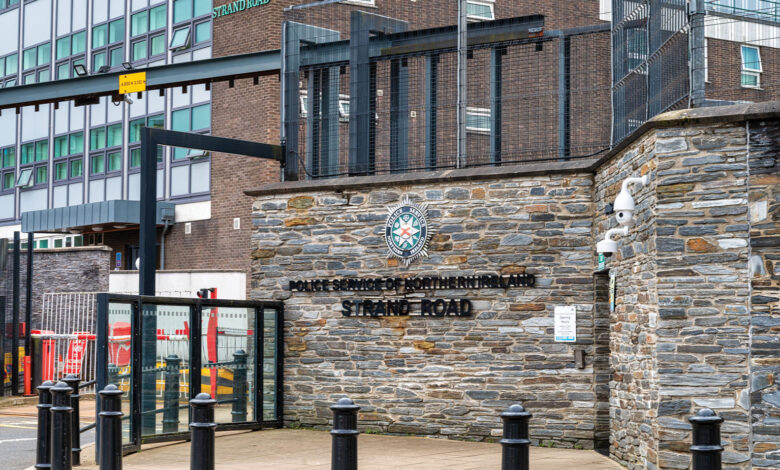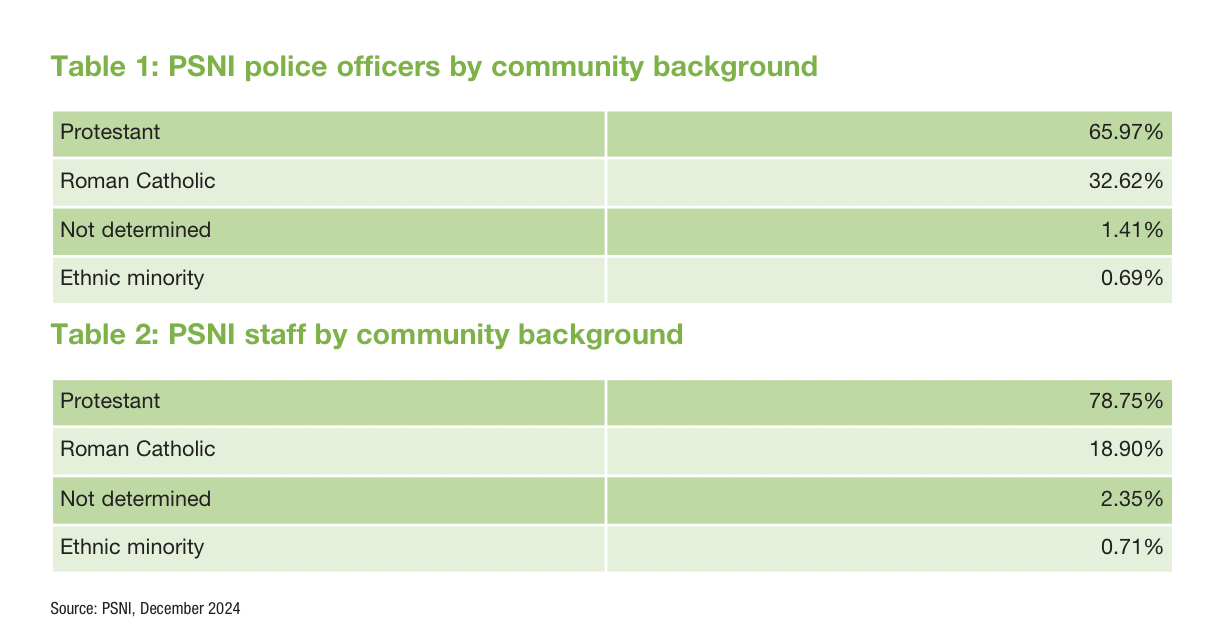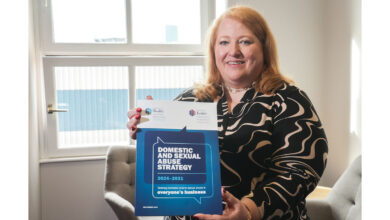PSNI race plan short on detail

The Police Service of Northern Ireland (PSNI) has published a draft Race and Ethnicity Action Plan 2025–2027 which, in spite of significant under-representation of PSNI members from a minority ethnic background and rising hate crime figures in Northern Ireland, is scant on detail.
PSNI data highlights the stark disparity between the demographics of Northern Ireland’s general population and the composition of its police force. Only 0.71 per cent of the PSNI’s staff and 0.69 per cent of its officers identify as belonging to an ethnic minority, in contrast to 8.1 per cent of the overall population of Northern Ireland.
The consultation-stage plan is presented against a backdrop of persistent underrepresentation within the PSNI workforce and strained relations with minority populations.
However, aside from generic goals such as being “representative and inclusive” and “leading together”, the action plan falls short on specific detail as to how it will diversify the workforce of the PSNI.
A deeper look into recruitment statistics reveals challenges in attracting ethnic minority applicants to policing roles. Despite years of initiatives to enhance workforce diversity, progress remains slow, raising questions about the effectiveness of previous strategies and the barriers that continue to deter minority participation.
The PSNI has faced scrutiny for its handling of race-related incidents, such as criticism following Black Lives Matter protests, and the circumstances surrounding the death of Belfast teenager Noah Donohoe in 2020.
These incidents have led to a perceived lack of confidence in law enforcement among some minority communities, arguably exacerbated by the race riots which took place in August 2024 and the minimal number of linked arrests.

The riots in August 2024 saw ethnic minority-owned businesses face arson attacks, with a number of victims who owned businesses outlining their intention to leave Northern Ireland or permanently close their premises.
PSNI’s workstreams
In the action plan, the PSNI has outlined five ‘workstreams’ which offer little by way of measurable targets, save for generic goals such as “treating people with an ethnic minority background fairly and with respect”.
The five workstreams are:
1. internal culture and inclusivity;
2. professionalism, powers, and policies;
3. community engagement and relations;
4. protection, partnership and justice; and
5. performance and accountability
On reforming the PSNI’s culture, the action plan states that it will increase “the awareness of racism, anti-racism, Black history, and its connection to policing”, something, it asserts, will take place through “robust training programmes”.
However, there is no evaluation of racial attitudes within the organisation. The action plan, while outlining goals such as treating ethnic minority members “with respect”, does not outline the scale of racist attitudes within the PSNI, in spite of the fact that this is common research carried out in analogous documents in other countries.
In spite of the lack of statistics or research, the PSNI, by virtue of the fact that it aims to “eliminate” racial bias, stereotyping, profiling or discrimination in its actions, does acknowledge that there is a challenge. However, its solution to this challenge is to “take actions to eliminate any identified racial disparities”.
Community relations and societal challenges
More broadly, the race and ethnicity action plan makes no mention of the demographic challenges that persist beyond ethnic minorities, in spite of the fact that there remains a sizeable gap between the number of Catholic and Protestant police staff and police officers (see table 1 and table 2).
Meanwhile, a 2023 report by Queen’s University Belfast and the Department of Justice found that more than almost two-thirds of youths held in custody in 2018/19 were from a Catholic background.
The report, entitled Over-representation in the Youth Justice System in Northern Ireland, cites statistics from the Youth Justice Agency (YJA) which reports that 62.9 per cent of young people who were in PSNI custody in 2018/19 were Catholics, despite only accounting for roughly 45 per cent of the population in the 15-19 age group.
Next steps
While the Race and Ethnicity Action Plan outlines the PSNI’s ideals of being non-racist, the level of detail in the Race and Ethnicity Action Plan shows that there is a shortfall in internal reflection, without which the scale of racism within and around the PSNI cannot be comprehensively determined.
With the draft document published in October 2024, an eight-week consultation has taken place for which submissions closed on 16 December 2024. It is not yet clear what the next steps are or what, if any, reforms will arise from this.





